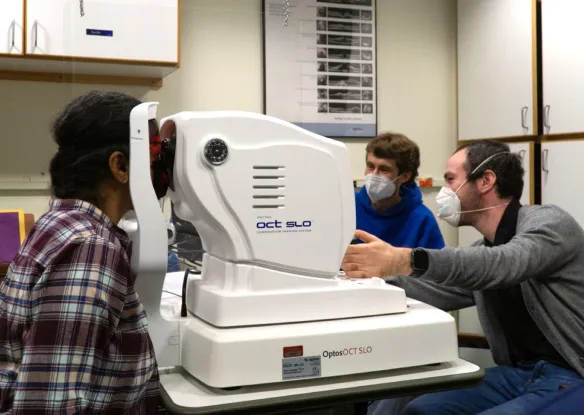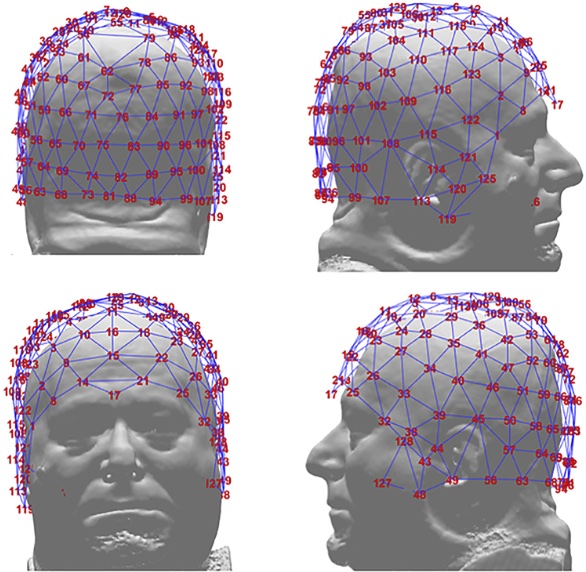
Principal Investigator:
Contact Information:
Email: cwt@ski.org
office Phone: (415) 345-2105
2318 Fillmore Street San Francisco, CA 94115
Our work centers on human visual neuroscience and computational vision, especially in the areas of stereoscopic depth, form, symmetry, and motion perception in adults, and the development of tests for the diagnosis of eye diseases in infants and adults. The current focus of the lab is on theoretical, psychophysical, oculomotor and fMRI studies of the integration of cues to the full scope of 3D depth perception. We are particularly interested in the normal capabilities of binocular eye movement control and its disruption by forms of traumatic brain injury.

Publications
Projects
- Completed
- Inactive
Human Oculomotor Functions & Their Deficits in Traumatic Brain Injury
Oculomotor Control
People
News
- SKERI Scientist Proposes New Model of Electroretinogram KineticsThe electroretinogram (ERG) is an established technique for non-invasively reading out the layer-by-layer functioning of the human retina, providing biomarkers for a wide range of retinal and neurological diseases.
- Exciting Research on Vision Presented at ARVO 2024 ConferenceResearchers from the Smith Kettlewell Eye Research Institute are set to unveil their newest findings at the upcoming Association for Research in Vision and Ophthalmology (ARVO) Annual Meeting in Seattle,...
- SKERI Scientist Leads Art/Science Symposium at IS&TOn January 22, 2024 Dr. Lora Likova chaired an interdisciplinary art/science symposium at this year’s annual meeting of the Society for Imaging Science and Technology (IS&T) meeting in Burlingame, CA.
- SKERI Scientist Leads Art/Science Symposium at IS&TOn January 22, 2024 Dr. Lora Likova chaired an interdisciplinary art/science symposium at this year’s annual meeting of the Society […]
Get Involved
If you are interested in vision science or want to learn more about low vision and blindness, there are many opportunities to get involved at The Smith-Kettlewell Eye Research Institute.






















